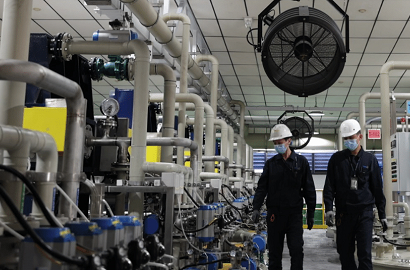Galp and TES conduct feasibility study with a view to constructing lithium battery recycling plant

The Singaporean company already operates similar facilities in Europe, Southeast Asia and China
Energy company Galp has signed a memorandum of understanding with TES, which specialises in battery recycling and IT asset lifecycle management, to assess the feasibility of setting up a sustainable battery recycling business on the Iberian Peninsula. This would be a fundamental step towards closing the value chain for these components at a local level.
Through this agreement, the Portuguese and Singaporean companies will combine their experience to create a circular economy platform on the Iberian Peninsula, and revolving around the materials that make up lithium-ion batteries. The facilities would have to be able to handle both mechanical and chemical processes.
Contacts with suppliers
involve their suppliers: battery producers, automotive OEMs, EV fleet owners and other end-of-life battery stakeholders.
The necessary engineering studies for designing a competitive, sustainable process will at the same time, be initiated. The aim is to break down and transform end-of-life batteries into recycled raw materials for new batteries, but the cost will need to be managed in order to be able to offer a fair price to future customers as well as meeting their needs.
Carbon neutrality
To achieve its objective of becoming a carbon neutral energy company by 2050, Galp is also working on creating a lithium conversion unit in Portugal. TES, in turn, operates several battery recycling plants in Europe, South East Asia and China.
According to Galp's Executive Vice President for Renewables and New Business, Georgios Papadimitriou, “Lithium-ion batteries are vital for electrifying mobility, ensuring the uptake of renewable energies for use in electricity systems and in a wide variety of applications”. “Recycling will play a key role in making the battery value chain sustainable going forward, and this will only happen if we put the necessary skills and knowledge to work today”, he explained.
Restoration of solar power plants
The Portuguese company has launched another pilot project, in collaboration with the University of Zaragoza, to restore solar power plants in Escatrón (Zaragoza). The aim is to promote the coexistence of agriculture and livestock farming with the preservation of biodiversity and care for the natural environment at this type of facility.
The programme involves designing an environmental improvement methodology that can subsequently be applied to the rest of Galp's solar power plants in Aragon and Castile-La Mancha.
Photo: TES




